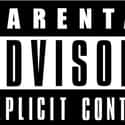-
(#2) Snider Implied Tipper Gore Had A Dirty Mind
In his testimony before the Senate, Snider directly addressed Tipper Gore's contention that Twisted Sister's song "Under the Blade" was sadomasochistic and about bondage. The song, according to Snider, was written for the band's guitar player, Eddie Ojeda, who was having surgery. Tipper Gore, however, claimed there was a sexual message in the lyrics:
Your hands are tied, your legs are strapped, a light shines in your eyes
You faintly see a razor's edge, you open your mouth to crySnider told the Committee "Ms. Gore was looking for sadomasochism and bondage and she found it," indicating the bondage was a metaphor for fear. Snider later wrote for the Huffington Post that he enjoyed the "raw hatred I saw in Al Gore's eyes when I said Tipper Gore had a dirty mind." Al Gore was also on the Senate subcommittee.
Snider later got Senator Gore to admit to liking John Denver and Frank Zappa, although he wasn't a Twisted Sister fan.
-
(#12) Snider Made It Clear That He Worked Hard And He Shouldn't Be Punished For It
Dee Snider didn't hold back when it came to being honest with the committee. He told them he believed in his music and that he was an entertainer, just like actors and others. Snider was out to have fun, not to corrupt his audiences. He thought rock bands had a bad reputation, but he also believed wasn't part of the problem; he was working to fight sexism and other negative aspects of the music industry.
In the end, Snider's only recommendation for change in the music industry involved some sort of return policy that parents could use to return material they deemed inappropriate. Snider lost that battle, however, when the RIAA caved and agreed to start labeling albums in November 1985. In 1990, the "Parental Advisory" label became standardized.
-
(#13) Many Musicians Protested The Label With Reactive Music
After the decision to include Parental Advisory labels, many musicians and artists protested through song. Punk group NOFX released an EP titled, THE P.M.R.C. Can Suck on This in 1987.
Danzig's 1988 song "Mother" managed to break into mainstream radio and contained lyrics calling out the problems with the PMRC:
Mother, tell your children not to walk my way.
Tell your children not to hear my words.
What they mean, what they say, mother.Ice-T's 1989 album The Iceberg/Freedom of Speech... Just Watch What You Say contains several lyrics bashing the PMRC. One song in particular, "Freedom of Speech," is a blatant jab at Tipper Gore:
Yo, Tip, what's the matter? You ain't gettin' no d*ck?
You're b*tchin' about rock 'n' roll - that's censorship, dumb b*tch
The Constitution says we all got a right to speak
Say what we want, Tip - your argument is weakEven decades after the decision, musicians like Eminem still attacked the decision. In his song "White America," the outro includes a direct "f*ck you" to Tipper Gore and the PMRC.
-

(#9) Snider Corrected A Committee Member On A Supreme Court Ruling
During Snider's testimony, Senator Ernest Hollings from South Carolina asked him about different perceptions of obscenity and vulgarity. He read part of a Supreme Court verdict in the Pacifica Case involving the Federal Communications Commission (famous for the role George Carlin's "Seven Dirty Words" played in it). In the case, the Supreme Court ruled that "Patently offensive, indecent material presented over the airwaves confronts the citizen not only in public, but also in the privacy of the home. The individual's right to be left alone, plainly outweighs the first amendment rights of an intruder."
Snider wasn't phased and pointed out he was "talking about the airwaves as opposed to a person going with their money to purchase an album to play in their and room, in their home, on their own time. The airwaves are something different."
Frank Zappa used a similar line of thought in his testimony, telling the committee people had a choice when it came to the music they brought into their homes. Zappa's dismissive and mocking tone in his testimony wasn't well-received by Senator Slade Gorton of Washington State, who responded:
I found your statement to be boorish, incredibly and insensitively insulting to the people that were here previously; that you could manage to give the first amendment of the Constitution of the United States a bad name, if I felt that you had the slightest understanding of it, which I do not. You do not have the slightest understanding of the difference between Government action and private action, and you have certainly destroyed any case you might otherwise have had with this Senator.
-

(#6) Snider Argued Lyrics Weren't The Only Thing About Music That Mattered
When asked by the committee chairperson, Senator John Danforth of Missouri, if parents know what is on the albums they buy their kids or that kids buy themselves, Snider was blunt when he admitted it didn't matter. Snider stated he didn't know everything on each of the albums he listened to, and even on the albums he knew well, the lyrics didn't make him do bad things.
According to Snider, "I know that AC/DC, one of my favorite bands, sings a lot of songs glorifying hell and damnation. I am a Christian. I do not believe - I do not want to go to hell and I do not want to be damned for all time. But I do like the feel of the songs. The lyrics have no effect on me."
-

(#8) Snider Told Congress There Were Some Very Simple Ways To Figure Out If A Song Was Appropriate - None Of Which Involved Labels
When asked how he would find out if a song was right for a kid to listen to, Snider gave three options. First, he'd look at the cover:
Well, quite simply, as a parent myself and as a rock fan, I know that when I see an album cover with a severed goat's head in the middle of a pentagram between a woman's legs, that is not the kind of album I want my son to be listening to.
Second, he'd read the song list and lyrics:
If I read a title on the back of, say, Somebody's Ice Cream Castle, a title called "If the Kid Can't Make You Come," whatever it is, I realize that is a sexually explicit song. By just looking at the cover, looking at the lyrics, looking at, I should say, the titles, that should cover just about all bases.
Finally, he'd listen to it:
The few albums that do not express their intentions on the cover or in the song titles, I think a parent could take it home, listen to it. And I do not think there are too many retail stores that would deny them the ability to return the album for something different.
New Random Displays Display All By Ranking
About This Tool
For rock fans, Dee Snider, the lead singer of Twisted Sister, is definitely one of the most well-known legends. His famous song "We're Not Gonna Take It" was Trump's campaign song during the 2016 U.S. election. He not only achieved great commercial success but also made great contributions to the development of rock music. In the 1980s, PMRC began to the mandatory requirement to promote music censorship and grading, which was strongly opposed by many rock musicians.
As a member of the hearing, Dee Snider publicly expressed his opposition to censorship, his speech shocked everyone, and the video of this hearing is still available online. The random tool lists 13 details about his attitude and speech to fight against censorship.
Our data comes from Ranker, If you want to participate in the ranking of items displayed on this page, please click here.













